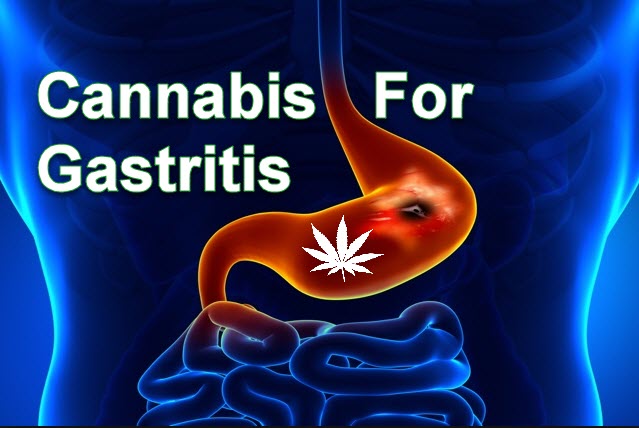Stomach Conditions That Cannabis Can Treat
Stomach Issues and Gas - Does Cannabis Help? from CannabisNet on Vimeo.
The efficacy of cannabis as an antiemetic (fights nausea and vomiting) and analgesic (painkiller) is widely known. However, those aren’t the only benefits of cannabis for conditions affecting your stomach.
The endocannabinoid system is critical to ensuring that our gastrointestinal functions are working properly. It helps regulate numerous processes such as hunger, appetite, satiety, salivation, digestion, and much more. Studies show that cannabis is effective in treating many gastrointestinal conditions because it interacts with the cannabinoid receptors found in the digestive tract which improves gut health thanks to its ability to fight inflammation, calm spasms, provide pain relief, and improve motility. Cannabis has the ability to heal a wide range of stomach conditions with none of the side effects that pharmaceutical medicines often have.
Here are some of the common gastrointestinal conditions that cannabis is effective in treating:
Appetite Loss
While a case of the munchies might seem like nothing more than a nuisance at most for recreational cannabis users, this specific benefit of cannabis is life-saving for individuals trying to heal from eating disorders or for those who suffer from complete appetite loss as a result of cancer, chemotherapy, or HIV/AIDS.
Individuals with anorexia nervosa have the highest morality rate compared to those suffering from other kinds of psychological disorders. Anorexia is a condition where serious self-esteem issues result in appetite loss, which then causes people to avoid eating or go into starvation mode for long periods of time. As a result, they suffer from muscle loss, fatigue, extreme malnutrition, and brittle bones – without treatment, this will lead to death.
Appetite loss also affects patients with HIV/AIDS. In a 2005 study, 97% of HIV positive patients reported that their appetites improved thanks to cannabis use. Even using dronabinol, a synthetic form of cannabis, improved appetites among HIV patients. When cannabis was consumed by HIV-positive patients, they began eating more often and body weight increased.
Science shows that when the body’s CB1 receptors are activated by cannabis, it stimulates the appetite in the brain’s cannabinoid receptors. This is because the CB1 receptors also activate the release of hunger-promoting hormones. Another study highlighted the importance of THC (tetrahydrocannabidiol), the cannabinoid that is responsible for the psychoactive high of cannabis, in treating anorexia. The study’s authors found that THC activates the endocannabinoid’s CBD1 receptors by increasing the pleasure associated when exposed to certain tastes and smells.
Crohn’s Disease
Crohn’s disease is a type of inflammatory bowel disease, which results when chronic inflammation in the digestive tract causes symptoms such as rectal bleeding, abdominal pain, diarrhea, and feeling as if you constantly need to move your bowels.
While Crohn’s disease isn’t fatal, it can seriously affect one’s quality of life. Primarily opioids are recommended by doctors to treat Crohn’s disease, which has debilitating and fatal side effects. Surgery may also be recommended if conventional medicines don’t work. On the other hand, cannabis is already being used by many who suffer from Crohn’s disease.
While we still lack large-scale studies documenting the efficacy of cannabis for Crohn’s disease, the growing body of evidence that we have today is promising. A 2011 Israeli study on cannabis’ effects on patients with Crohn’s disease revealed that 21 out of 30 participants in the study said that cannabis use helped their symptoms “improve significantly” while minimizing the need for other kinds of medications. Another 2005 study polled 12 cannabis users who have Crohn’s disease, which found that they also saw an improvement in their symptoms. The study’s authors write, “For all signs and symptoms evaluated in the study, the patients described marked improvements with the use of cannabis. Beneficial effects were reported for appetite, pain, nausea, vomiting, fatigue, activity, and depression. Patients also reported that cannabis use resulted in weight gain, fewer stools per day and fewer flare-ups of less severity.”
Irritable Bowel Syndrome
Irritable bowel syndrome (IBS) is a common condition characterized mainly by the presence of either constipation or diarrhea. Other accompanying symptoms include abdominal pain, cramping, gas, and bloating.
Irritable bowel syndrome affects the large intestine. It is a chronic condition, which means that it tends to go on for months or even years. However, only a small group of people manifest severe IBS symptoms, making it difficult to diagnose and treat. When left untreated, IBS can manifest more serious symptoms such as rectal bleeding, unexplained vomiting, difficulty swallowing, weight loss, iron deficiency anemia, and persistent pain that doesn’t go away even after bowel movement.
IBS is usually caused by an infection in the gut flora, intense muscle contractions in the intestine, inflammation, and abnormalities the nervous system. Although cannabis is not a cure for IBS in itself, it has shown to be effective in addressing many of the IBS symptoms including inflammation and abnormalities in the nervous system, offering patients a safe way of speeding up healing while improving their quality of life.
Celiac Disease
Celiac disease affects 1 in every 100 people. It is an autoimmune disorder characterized by damage to the intestine when gluten is consumed. Abstaining from gluten, which is found in bread, crackers, pasta, cake, beer, donuts, and more, is the only true way to heal oneself from celiac disease. It can sometimes take months for the intestines to fully recover from celiac disease – once you have it, you have it for life.
Symptoms of celiac disease include weight loss, heartburn, joint pain, nausea, acid reflux, stomach pain, mouth ulcers, and more. In addition to these physical ailments, celiac disease may also cause anxiety and depression. But while changing your eating habits completely can help prevent the painful and uncomfortable symptoms of celiac disease from manifesting, cannabis has been shown to help.
A 2013 study conducted by the National Institute of Health revealed that cannabis is beneficial in treating celiac disease because it activates the endocannabinoid system. The researchers analyzed the expression of cannabinoid receptors in the body, particularly in the duodenal mucosa which is the lining of the small intestine that goes into the stomach. In untreated celiac disease patients, they found that the CB1 and CB2 receptors were much more dominant. This means that there was a high therapeutic potential for using cannabis to improve patients’ overall well-being.
Cannabis is also beneficial in treating the other symptoms of celiac disease because of its antiemetic and analgesic properties. Doctors recommend indica and indica-dominant strains for celiac disease because of its superior ability to calm muscles and treat digestive conditions.
Gastritis
Gastritis is an inflammatory gastrointestinal disease that affects the stomach lining. This condition affects digestion, since the stomach lining contains important glands that are responsible for producing stomach acids and peptin which aid in digestion. In the case of gastritis, a bacteria called H.Pylori damages the protective barrier in the stomach lining. As a result, a painful and upset stomach occurs. Other symptoms of gastritis include nausea, loss of appetite, vomiting, dark stools, and hiccups.
Gastritis is usually caused by the consumption of too much alcohol. Other factors may also cause gastritis such as the use of anti-inflammatory drugs and medications, smoking cigarettes, chronic stress, steroids, spicy food, and bacteria or viruses. Common prescription medications recommended for the treatment of gastritis include proton pump inhibitors, antibiotics, and antacids. In some cases these medications work, but sometimes other patients find no relief. If left untreated, gastritis may increase the risk for stomach cancer.
Researchers have found that cannabis is a promising, safe alternative for gastritis patients. Austrian and German researchers wrote, “It was not surprising to discover that the GI tract accommodates and expresses all the components of the ECS (the endocannabinoid system).” Cannabis can also provide relief for the other symptoms of gastritis including appetite loss, nausea, inflammation, and the anxiety and depression that may occur.
Consuming Cannabis For Gastrointestinal Conditions
Patients suffering from these gastrointestinal conditions can choose to medicate from a number of different ways. Smoking cannabis provides instantaneous relief for pain, vomiting, nausea, appetite loss, anxiety, and depression. However, those with gastritis, acid reflux, and heartburn may find that smoking could aggravate their symptoms.
Consuming cannabis edibles is a great way of directly introducing cannabinoids to the gastrointestinal tract, providing potent therapeutic value for those suffering from diarrhea, constipation, fatigue, abdominal pain, and appetite loss. Edibles are a safe, effective method of consuming cannabis for patients with gastritis, acid reflux, and heartburn. Edibles high in CBD do a great job at treating nausea and pain while providing long-lasting relief from many other ailments. Patients with celiac disease can opt to make their own gluten-free edibles at home or choose from a wide range of gluten-free cannabis edibles that are already on the market. Patients with Crohn’s disease often report better efficacy when edibles are used as treatment.
CBD oils are becoming an increasingly popular option for medication, including gastrointestinal conditions. It’s especially advantageous for patients who don’t want to get high, or for the elderly and young children who can’t handle the psychoactive effects of THC. CBD oil is also beneficial for patients suffering from gastrointestinal disorders with accompanying anxiety and depression.
How has cannabis helped you manage or treat a gastrointestinal condition? Let us know in the comments below!
Stomach Conditions That Medical Marijuana Can Treat from CannabisNet on Vimeo.
OTHER STORIES YOU MAY ENJOY...
CANNABIS FOR GASTRITIS, CLICK HERE.








